Fiat 500 vs Ford Focus - Differences and prices compared
Compare performance (118 HP vs 280 HP), boot space and price (17100 £ vs 27500 £ ) at a glance. Find out which car is the better choice for you – Fiat 500 or Ford Focus?
Costs and Efficiency:
Price and efficiency are often the first things buyers look at. Here it becomes clear which model has the long-term edge – whether at the pump, the plug, or in purchase price.
Fiat 500 has a clearly advantage in terms of price – it starts at 17100 £ , while the Ford Focus costs 27500 £ . That’s a price difference of around 10380 £.
Fuel consumption also shows a difference: Ford Focus manages with 4.90 L and is therefore minimal more efficient than the Fiat 500 with 5.20 L. The difference is about 0.30 L per 100 km.
Engine and Performance:
Under the bonnet, it becomes clear which model is tuned for sportiness and which one takes the lead when you hit the accelerator.
When it comes to engine power, the Ford Focus has a significantly edge – offering 280 HP compared to 118 HP. That’s roughly 162 HP more horsepower.
In acceleration from 0 to 100 km/h, the Ford Focus is decisively quicker – completing the sprint in 5.70 s, while the Fiat 500 takes 9 s. That’s about 3.30 s faster.
In terms of top speed, the Ford Focus performs distinct better – reaching 250 km/h, while the Fiat 500 tops out at 155 km/h. The difference is around 95 km/h.
There’s also a difference in torque: Ford Focus pulls convincingly stronger with 420 Nm compared to 220 Nm. That’s about 200 Nm difference.
Space and Everyday Use:
Cabin size, boot volume and payload all play a role in everyday practicality. Here, comfort and flexibility make the difference.
Seats: Ford Focus offers somewhat more seating capacity – 5 vs 4.
In curb weight, Fiat 500 is slightly lighter – 1130 kg compared to 1330 kg. The difference is around 200 kg.
In terms of boot space, the Ford Focus offers decisively more room – 392 L compared to 185 L. That’s a difference of about 207 L.
In maximum load capacity, the Ford Focus performs convincingly better – up to 1354 L, which is about 804 L more than the Fiat 500.
When it comes to payload, Ford Focus clearly takes the win – 560 kg compared to 325 kg. That’s a difference of about 235 kg.
Who wins the race in the data check?
The Ford Focus holds a decisive overall lead in the objective data comparison.
This result only shows which model scores more points on paper – not which of the two cars feels right for you.
Costs and Consumption
View detailed analysis
Engine and Performance
View detailed analysis
Dimensions and Body
View detailed analysis
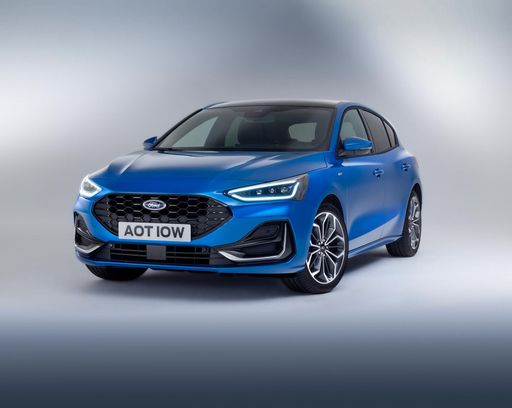
Ford Focus
Fiat 500
The Fiat 500 is a cheeky, retro‑styled city car that turns heads with its iconic looks and playful personality. Perfect for weaving through tight streets and easing into tiny parking spots, it’s aimed at buyers who want style and character more than grand touring prowess.
details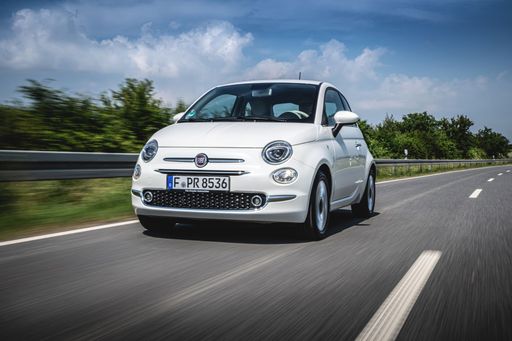
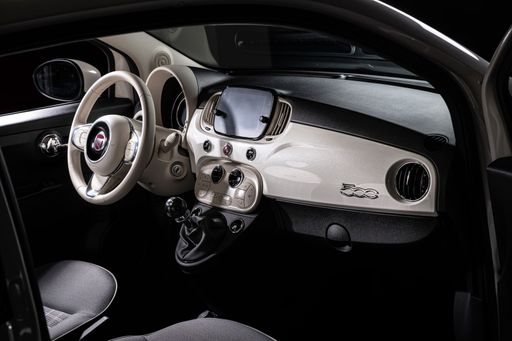
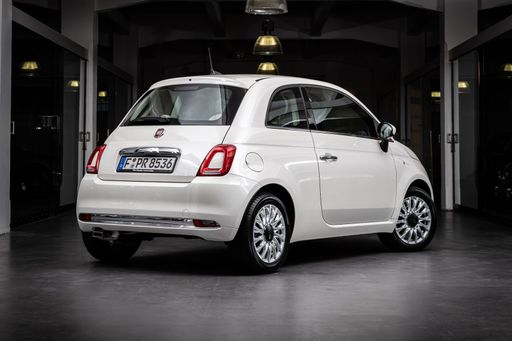
Ford Focus
The Ford Focus remains a clever all‑rounder that balances sharp handling with everyday comfort, making it a strong choice whether your commute is city streets or country lanes. Its practical cabin and sensible running costs mean you’ll spend more time enjoying the drive and less time worrying about ownership, with a playful streak underfoot that keeps things interesting.
details
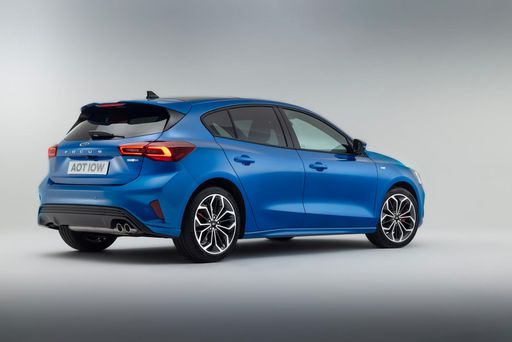
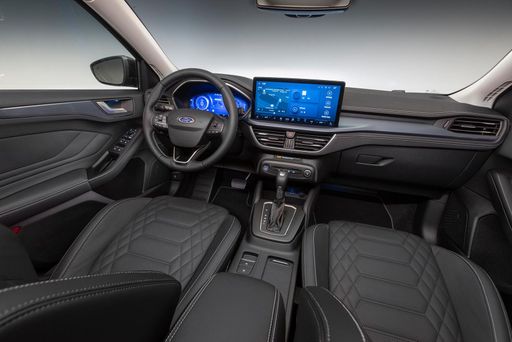
Costs and Consumption |
|
|---|---|
|
Price
17100 - 30800 £
|
Price
27500 - 42700 £
|
|
Consumption L/100km
5.2 - 5.3 L
|
Consumption L/100km
4.9 - 8 L
|
|
Consumption kWh/100km
13 - 14.7 kWh
|
Consumption kWh/100km
-
|
|
Electric Range
190 - 331 km
|
Electric Range
-
|
|
Battery Capacity
21.3 - 37.3 kWh
|
Battery Capacity
-
|
|
co2
0 - 121 g/km
|
co2
117 - 183 g/km
|
|
Fuel tank capacity
-
|
Fuel tank capacity
52 L
|
Dimensions and Body |
|
|---|---|
|
Body Type
Hatchback
|
Body Type
Hatchback
|
|
Seats
4
|
Seats
5
|
|
Doors
3 - 4
|
Doors
5
|
|
Curb weight
1130 - 1475 kg
|
Curb weight
1330 - 1529 kg
|
|
Trunk capacity
183 - 185 L
|
Trunk capacity
392 L
|
|
Length
3631 - 3632 mm
|
Length
4382 - 4397 mm
|
|
Width
1683 - 1684 mm
|
Width
1825 - 1844 mm
|
|
Height
1527 - 1532 mm
|
Height
1438 - 1482 mm
|
|
Max trunk capacity
440 - 550 L
|
Max trunk capacity
1354 L
|
|
Payload
250 - 325 kg
|
Payload
495 - 560 kg
|
Engine and Performance |
|
|---|---|
|
Engine Type
Electric, Petrol MHEV
|
Engine Type
Petrol MHEV, Diesel, Petrol
|
|
Transmission
Automatic, Manuel
|
Transmission
Manuel, Automatic
|
|
Transmission Detail
Reduction Gearbox, Manual Gearbox
|
Transmission Detail
Manual Gearbox, Dual-Clutch Automatic, Automatic Gearbox
|
|
Drive Type
Front-Wheel Drive
|
Drive Type
Front-Wheel Drive
|
|
Power HP
65 - 118 HP
|
Power HP
115 - 280 HP
|
|
Acceleration 0-100km/h
9 - 16.2 s
|
Acceleration 0-100km/h
5.7 - 11.8 s
|
|
Max Speed
135 - 155 km/h
|
Max Speed
186 - 250 km/h
|
|
Torque
92 - 220 Nm
|
Torque
170 - 420 Nm
|
|
Number of Cylinders
3
|
Number of Cylinders
3 - 4
|
|
Power kW
48 - 87 kW
|
Power kW
85 - 206 kW
|
|
Engine capacity
999 cm3
|
Engine capacity
999 - 2261 cm3
|
General |
|
|---|---|
|
Model Year
2023 - 2025
|
Model Year
2022 - 2024
|
|
CO2 Efficiency Class
A, D
|
CO2 Efficiency Class
D, G
|
|
Brand
Fiat
|
Brand
Ford
|
What drivetrain options does the Fiat 500 have?
The Fiat 500 is offered with Front-Wheel Drive.




